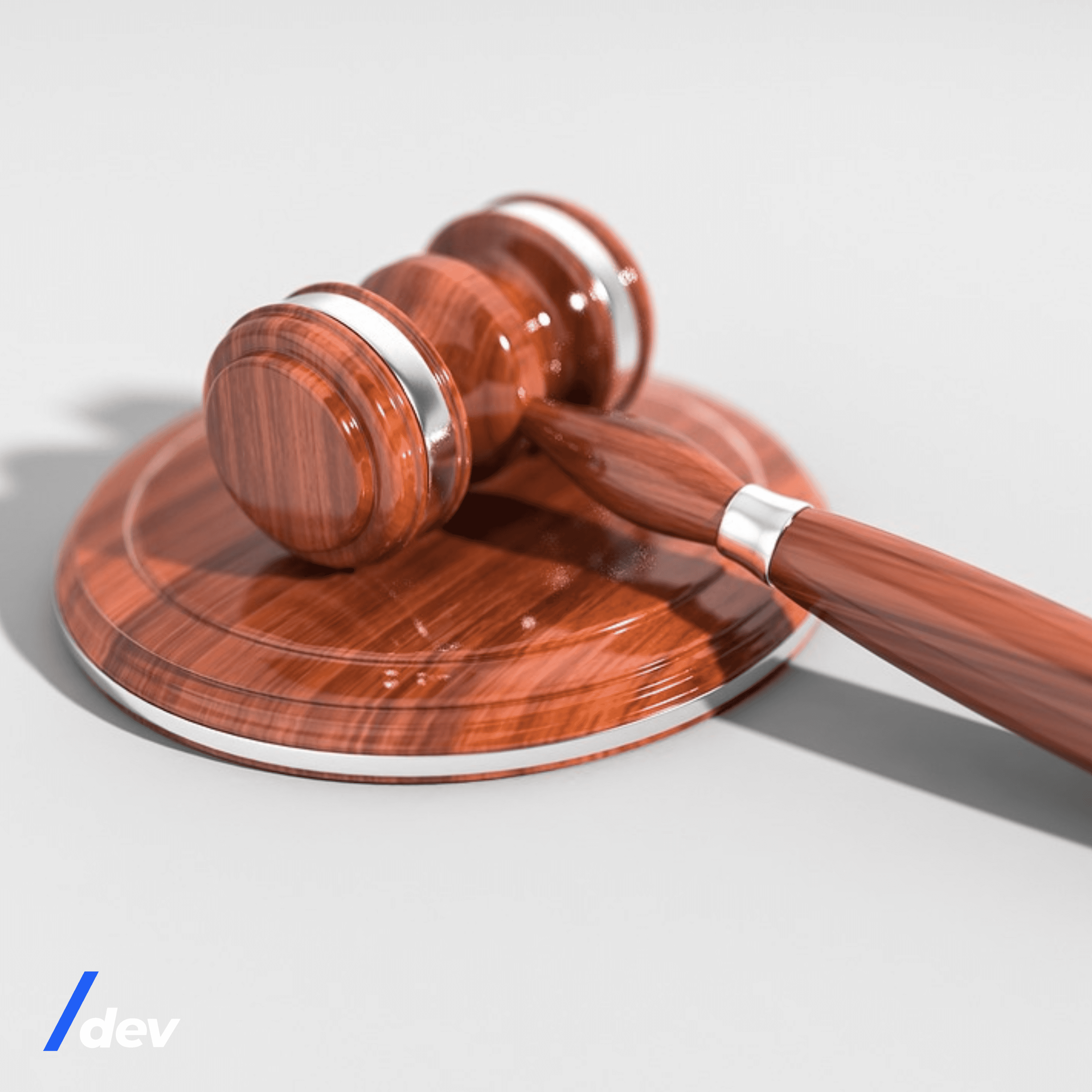Software Services
For Companies
For Developers
Portfolio
Build With Us
Get Senior Engineers Straight To Your Inbox

Every month we send out our top new engineers in our network who are looking for work, be the first to get informed when top engineers become available

At Slashdev, we connect top-tier software engineers with innovative companies. Our network includes the most talented developers worldwide, carefully vetted to ensure exceptional quality and reliability.
Build With Us
Implementation of AI in Law Practice: Revolutionizing Efficiency and Access to Justice/


Introduction/
Artificial Intelligence (AI) has emerged as a transformative technology in various industries, including the field of law. The implementation of AI in law practice is revolutionizing the way legal professionals work, improving efficiency, accuracy, and accessibility to justice. In this article, we delve into the development details and explore the significant benefits of integrating AI into law practice, highlighting its potential to streamline processes, enhance legal research, and improve client services.
The Role of AI in Law Practice/

Evolution of AI in the Legal Industry
AI has evolved from its theoretical foundations to practical applications in the legal sector. As AI technologies advance and become more sophisticated, law firms and legal departments are embracing AI to augment their capabilities and address various challenges faced in legal practice.
Development of AI Solutions for Legal Practice
The development of AI solutions for law practice involves the utilization of advanced algorithms, natural language processing, machine learning, and predictive analytics. Researchers and developers collaborate to create AI-powered tools that can assist lawyers in legal research, document analysis, contract review, and more.
Streamlining Legal Processes with AI/
Legal Research and Document Analysis
AI-powered tools can analyze vast amounts of legal documents and case law to provide lawyers with valuable insights and precedents. Through machine learning algorithms, these tools can quickly identify relevant cases, extract key information, and assist in legal research, saving significant time and effort.
Contract Review and Due Diligence

AI can streamline contract review processes by automatically extracting relevant clauses, identifying potential risks, and ensuring compliance. This automation improves efficiency, reduces human errors, and enables lawyers to focus on higher-value tasks, such as negotiation and strategy.
E-Discovery and Data Analysis
AI’s data processing capabilities enable efficient e-discovery, which involves the identification and extraction of relevant electronic information for legal proceedings. By leveraging AI algorithms, lawyers can quickly sift through large volumes of data, identify patterns, and uncover critical evidence.
Enhancing Client Services and Access to Justice/
Virtual Legal Assistants and Chatbots
AI-powered virtual legal assistants and chatbots are transforming client services by providing instant responses to legal inquiries, offering basic legal advice, and guiding individuals through legal processes. These AI-driven tools enhance access to justice by making legal information more readily available and affordable.
Predictive Analytics for Case Outcomes
AI algorithms can analyze historical case data to provide predictive insights on potential case outcomes. This information assists lawyers in advising clients on the likelihood of success, enabling more informed decisions and effective litigation strategies.
Legal Aid and Pro Bono Assistance
AI has the potential to bridge the justice gap by providing access to legal aid and pro bono assistance. Through AI-powered platforms, individuals with limited resources can access legal information, and self-help tools, and connect with pro bono lawyers, increasing access to justice for underserved populations.
Ethical Considerations and Challenges/
Ethical Use of AI in Law Practice
The implementation of AI in law practice raises ethical considerations, such as data privacy, bias mitigation, and accountability. Legal professionals must ensure that AI systems comply with legal and ethical standards, maintain transparency, and avoid reinforcing societal biases.
Technological Competence and Training
Lawyers and legal professionals need to develop technological competence to effectively utilize AI tools. Continuous training and upskilling are essential to harness the full potential of AI and ensure its responsible use in legal practice.
Balancing Automation and Human Judgment
While AI offers numerous benefits, it is crucial to strike a balance between automation and human judgment. The legal profession relies on nuanced decision-making and ethical reasoning, which cannot be fully replaced by AI systems. Lawyers must utilize AI as a powerful tool that augments their expertise and enhances their ability to serve clients.
Conclusion/
Implementing AI in law practice is revolutionizing the legal industry, improving efficiency, accuracy, and accessibility to justice. By streamlining legal processes, enhancing client services, and leveraging predictive analytics, AI is transforming the way legal professionals work. However, ethical considerations and challenges must be carefully addressed to ensure responsible AI use in the legal field.
To stay updated on the latest developments in AI and its applications in various industries, including law practice, visit slashdev.io. Slashdev.io provides valuable insights and resources for professionals interested in AI, helping them navigate the evolving landscape of technology and its impact on the legal profession.
